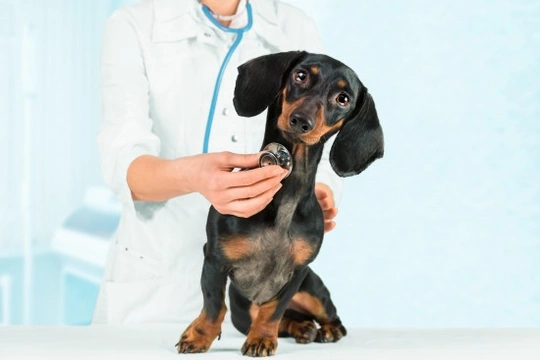
What happens if your pet is referred to a specialist or referral centre?
Sometimes, pets may present with symptoms or conditions that fall outside of the areas of expertise of the general practice vet, and this means that your vet may ask you for permission to refer your pet to a specialist surgeon, or referral centre. There are many different reasons behind why this might happen, and if your vet does recommend referral, it is important to follow their advice, for the best interests of your pet’s ongoing heath.
In this article, we will look at why pets might need referral, what it involves, and how to proceed.
How much does it cost for referral?
As with any type of veterinary treatment, there are lots of different elements to the fee structures for referrals. The first examination with a specialist, testing, surgeries, recovery and everything else are all billed individually, but it is certainly fair to say that treatment and consultations with specialist vets and referral clinics are not cheap. Just the cost of a consultation with a specialist can work out to be many times higher than a normal consult with a general practice vet, and the cost of treatment and testing can soon add up to several thousand pounds, and even higher.
Pet insurance policies almost always cover the cost of specialist treatments when referred by your own vet up to the limits of the policy, but it is important to realise that sometimes, the cost will come to more than the upper limit of the policy, and to have a contingency plan to deal with this.
Why might my pet be referred?
There are a huge range of potential reasons why your vet might wish to refer your pet to a specialist vet or clinic, and your vet will explain these to you in detail as they pertain to your own individual circumstances.
Some of the most common potential reasons for referral include:
- Exotic pets such as snakes and birds with unusual conditions that general practices are not trained to treat
- If a procedure or operation is required that is outside of the realms of general surgery, or that requires specialist equipment and treatment that mainstream practices cannot offer
- If specialist testing required, such as MRI scanning or examination by a veterinary ophthalmologist
- If your pet requires specialist treatment or surgery that is not part of the usual range of general surgery or treatment protocols
- If your pet is unwell but your vet cannot reach a definitive diagnosis for them and does not know how to proceed
- For a second opinion from a specialist in certain conditions
- If your pet required constant specialist care and supervision
- If your pet is taking part in experimental treatment or surgery, or taking part in a veterinary trial
Can I seek a specialist vet or clinic for my pet without going through my own vet?
As referral clinics are specialist centres that offer very specific and high-level treatment and diagnosis services, generally, they do not operate a regular general practice as well, or at least, not as part of the referral side of their business.
Generally, you cannot simply book an appointment with a referral clinic yourself; you will need to be referred by your own vet. If your vet will not refer you or you are not happy with their diagnosis or treatment of your pet, visit an alternative general practice instead for a second opinion, and ask them about their thoughts on referral for your animal.
What happens at the referral clinic?
Precisely what happens at the clinic itself will depend on why your pet has been sent there; you may be asked to attend a routinely scheduled appointment for a consult with a specialist, or to check your pet in for a day or so for tests.
However, it is also possible that your pet could be referred to a specialist as an emergency, if they are already ill and your own vet feels that they need specialist treatment. In this case, you will normally be asked to take your pet to the referral clinic straight away, or in some cases, your vet will arrange transport for you.
When you get to the referral clinic with your pet, the vet that is assigned to them will already be in possession of your pet’s clinical notes from your own vet, and will have a good idea about how they intend to proceed with testing and treatment. This should all be explained to you once you arrive, and the referral vet will talk you through their thoughts on the condition, how they wish to proceed, and what will happen next. You will also be given an idea of the cost at this stage (although this may only be the first of several stages of treatment and treatment costing) and asked to sign release forms to approve the treatment.
The clinic itself will keep you updated as things go on, and will advise you of any changes to your pet’s condition and what they have done to them so far. You cannot just pop in and visit your pet if they are an inpatient when it is convenient to you, as this will interfere with the running of the practice and may compromise your pet’s care, but once your pet is stable, visiting will usually be arranged.
Generally, once your pet is on the mend, their ongoing treatment and recovery will be referred back to your general practice vet, but it is possible that you will need to go back to the referral clinic for scheduled follow-ups or ongoing treatment too, depending on your pet’s condition.



